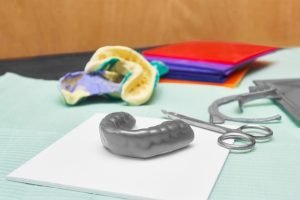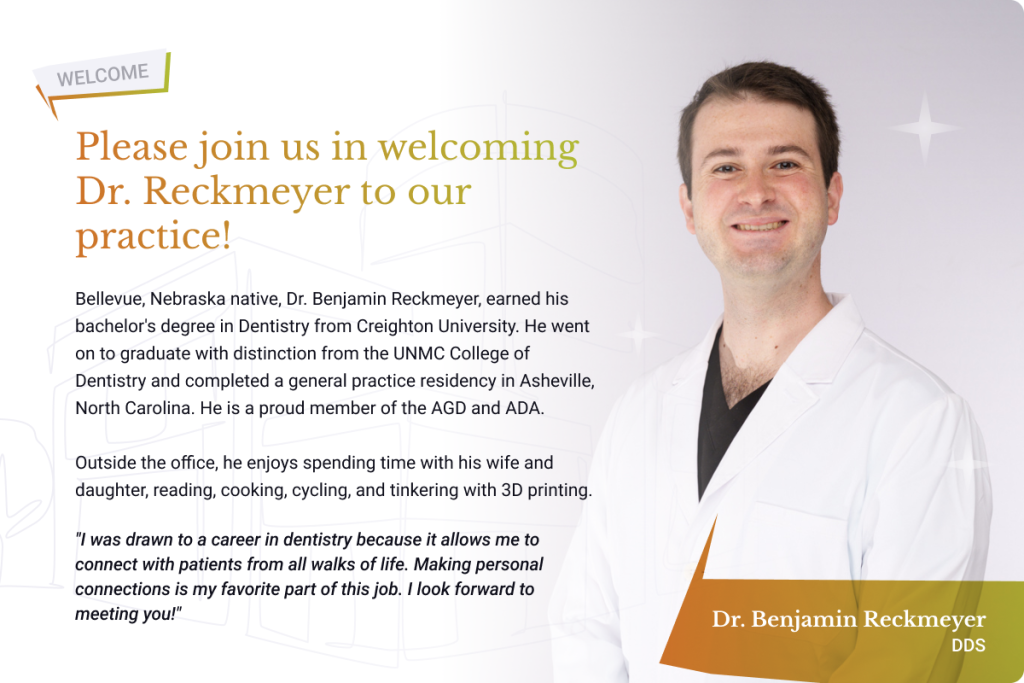Root Canal Preservation: Protect Your Oral Health For The Long Haul
Did you undergo a root canal and need to learn how to protect your tooth? At Downtown Dental Group, our Manhattan, KS, dentists Dr. Juliana Hall and Dr. Benjamin Reckmeyer understand that a root canal is more than a single procedure—it’s the beginning of a journey to preserve your natural tooth and maintain optimal oral health. This comprehensive guide will walk you through essential care strategies to support the long-term success of your root canal treatment. You can also learn more by calling our Riley County dental practice at (785) 776-0097.
Understanding Root Canal Recovery
A root canal is a critical dental procedure that saves a severely damaged or infected tooth. While the treatment itself addresses immediate dental issues, proper ongoing care determines the procedure’s ultimate success and your tooth’s longevity.
Immediate Post-Procedure Care (First Week)
Pain Management
After a root canal, some discomfort is normal. Most patients experience mild pain that can be managed with:
- Over-the-counter pain relievers such as ibuprofen or acetaminophen
- Prescribed medication from your dentist, if necessary
- Cold or warm compresses applied to the cheek for 15-20 minutes at a time
- Avoiding putting pressure on the treated tooth by chewing on the opposite side
It’s important to note severe pain lasting more than a few days is not typical and should be reported to your dentist.
Eating and Drinking Guidelines
During the initial recovery period, focus on:
- Soft foods like yogurt, smoothies, mashed potatoes, and scrambled eggs
- Lukewarm or room temperature beverages to avoid sensitivity
- Avoiding extremely hot or cold items that may cause discomfort
- Chewing on the opposite side of the treated tooth to prevent irritation
Most dentists recommend avoiding eating for a few hours after the procedure until the numbness wears off to prevent accidentally biting the tongue or cheek.
Oral Hygiene Protocols
Gentle care is crucial:
- Use a soft-bristled toothbrush to clean your teeth carefully
- Brush gently around the treated area to avoid irritation
- Continue regular flossing with extra caution around the treated tooth
- Consider using an antiseptic mouthwash recommended by your dentist to reduce bacteria
- Rinse with warm salt water several times a day to help reduce swelling and discomfort
Long-Term Maintenance Strategies
Dental Hygiene Practices
Consistent oral care prevents future complications:
- Brush twice daily with fluoride toothpaste for at least two minutes each time.
- Floss at least once daily, paying special attention to the area around the treated tooth.
- Use an electric toothbrush for more effective cleaning, if recommended by your dentist.
- Replace your toothbrush or electric toothbrush head every three to four months.
- Consider using a specialized brush designed for cleaning around root canal-treated teeth.
Protection and Restoration
Your dentist will likely recommend a dental crown:
- Crowns protect the weakened tooth structure from further damage
- Provides additional strength and protection against fractures
- Schedule follow-up appointments to check crown fit and integrity
- Replace the crown if signs of wear or damage appear
Regular Dental Check-ups
Consistent professional monitoring is key:
- Schedule dental check-ups every six months, or as recommended by your dentist.
- Inform your dentist about your root canal history during each visit.
- Get professional cleanings to maintain oral health.
- Allow X-rays to monitor the treated tooth’s and surrounding bone’s health.
Potential Complications to Watch For
Warning Signs of Problems
Be alert to potential issues:
- Persistent or returning pain in the treated tooth
- Swelling around the tooth or in the gums
- Tooth sensitivity to temperature or pressure that lasts more than a few days
- Discoloration of the tooth, which may indicate internal damage
- Unusual taste or odor, which could suggest an infection
When to Seek Professional Help
Contact Downtown Dental Group immediately if you experience:
- Sharp or prolonged pain that doesn’t respond to over-the-counter pain relievers
- Significant swelling in the gums or face
- Signs of infection such as fever or pus drainage
- Crown damage, looseness, or loss
- Any unusual symptoms that concern you
Lifestyle Considerations
Diet and Oral Health
Support your dental health through nutrition:
- Consume calcium-rich foods to strengthen teeth and bones.
- Stay hydrated to maintain saliva production, which helps neutralize acids.
- Limit sugary and acidic foods that can contribute to tooth decay.
- Eat foods that promote healing and reduce inflammation, such as leafy greens and omega-3-rich fish.
Protecting Your Treated Tooth
Additional protection strategies:
- Use a mouthguard during sports or high-impact activities
- Avoid using teeth as tools for opening packages or biting non-food items
- Be cautious with hard foods that could damage the crown or treated tooth
- Address teeth grinding with a night guard if recommended by your dentist
Long-Term Success Factors
Patient Commitment
Your active participation is crucial:
- Follow dental hygiene recommendations consistently.
- Attend all follow-up appointments as scheduled.
- Be proactive about your oral health by addressing concerns promptly.
- Communicate openly with your dentist about any changes or discomfort.
Professional Maintenance
Partner with your dental professionals:
- Trust your dentist’s guidance on care and maintenance.
- Schedule regular check-ups and cleanings.
- Stay informed about advancements in dental health practices.
- Consider preventive treatments recommended by your dentist to maintain oral health.
Maintain Your Dental Health, Call Today!
A successful root canal is a collaborative effort between you and your dental care team. By following these guidelines and maintaining open communication with your dentist, you can sustain the long-term health and function of your treated tooth.
Downtown Dental Group is committed to providing comprehensive dental care. If you have questions about root canal maintenance or need professional dental support, contact us at (785) 776-0097.






